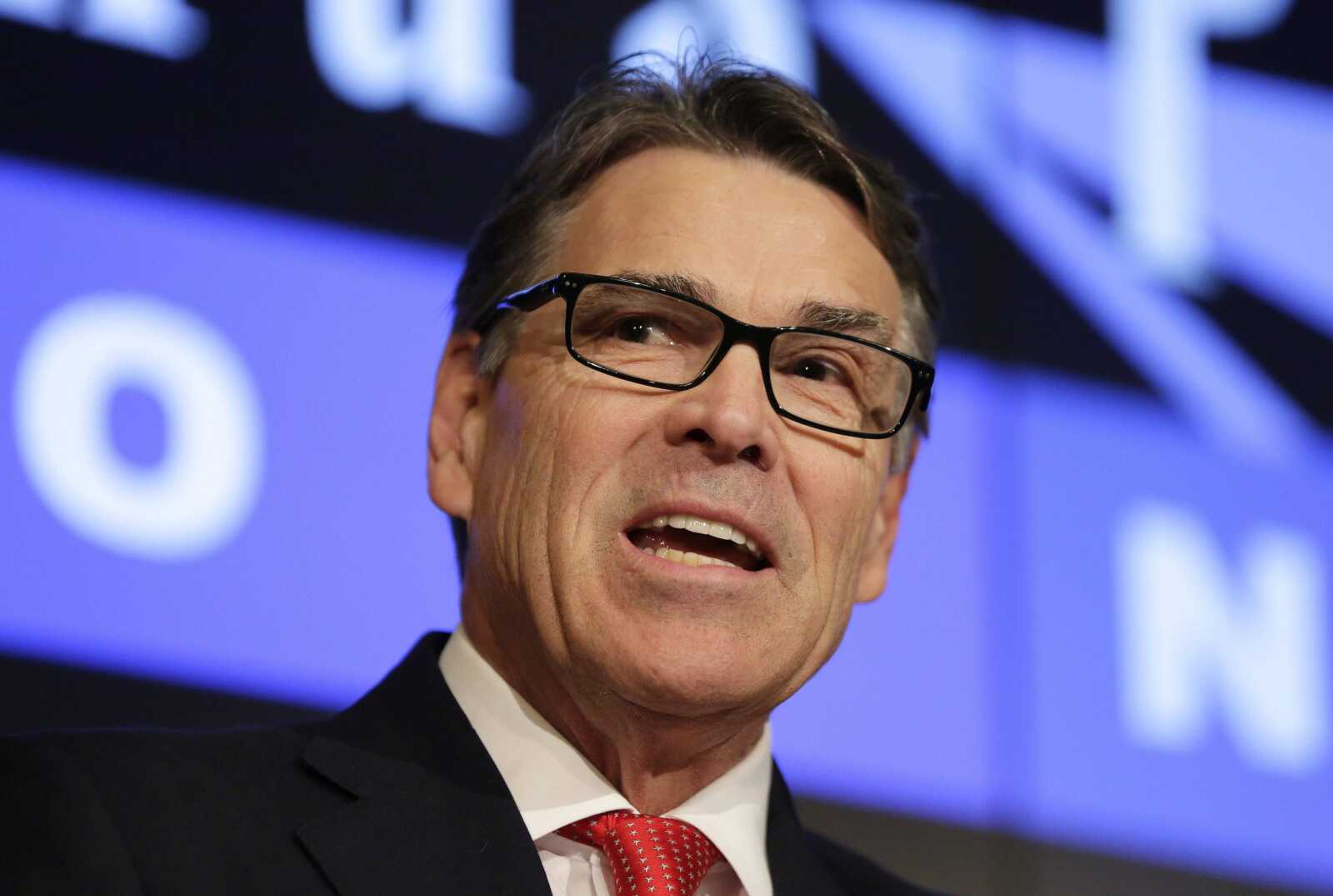Court clears ex-Gov. Rick Perry of 2nd felony charge
AUSTIN, Texas -- Texas' highest criminal court tossed the second and final felony charge against former Gov. Rick Perry on Wednesday, likely ending a case the Republican said helped sink his short-lived 2016 presidential bid. The Texas Court of Criminal Appeals dismissed the abuse-of-power charge, which was filed after Perry threatened -- then carried out -- a veto of state funding for a group of public-corruption prosecutors after the Democratic head of the unit refused to resign...
AUSTIN, Texas -- Texas' highest criminal court tossed the second and final felony charge against former Gov. Rick Perry on Wednesday, likely ending a case the Republican said helped sink his short-lived 2016 presidential bid.
The Texas Court of Criminal Appeals dismissed the abuse-of-power charge, which was filed after Perry threatened -- then carried out -- a veto of state funding for a group of public-corruption prosecutors after the Democratic head of the unit refused to resign.
In its 6-2 ruling, the court said veto power can't be restricted by the courts, and the prosecution of a veto "violates separations of powers." A lower appeals court had dismissed the other charge, coercion by a public servant, in July.
Perry is pleased the charges finally have been thrown out, said his attorney Tony Buzbee, who called it a "shame that it took that long to get something as weak and misguided as this to be dismissed."
"It was a bunch of foolishness from the beginning. I feel bad for him because he was put through this for no reason," Buzbee said.
Perry, the longest-serving governor in Texas history, left office in January 2015 while facing the felony indictment handed down the previous summer by a grand jury in Austin, a liberal bastion in otherwise conservative Texas.
The former governor made one court appearance in the case, which stems from 2013, when he publicly threatened to veto the $7.5 million in state funding for Public Integrity Unit prosecutors. Travis County District Attorney Rosemary Lehmberg, who led the investigative group, had rebuffed Perry's calls to resign after she was convicted and jailed for drunken driving.
Perry dismissed the case as a "political witch hunt," and legal scholars from across the political spectrum raised objections about it.
One of the judges who dissented in Wednesday's ruling, Republican Cheryl Johnson, said the decision could leave the public with a perception the system went out of its way to clear one of the most powerful governors in Texas history.
"The constant references to 'Governor Perry' could well be seen by the public as an inference that appellant's position in life entitles him to special privileges and special treatment by this court that others might be denied," wrote Johnson, referring to how judges addressed Perry during deliberations.
Michael McCrum, the San Antonio-based special prosecutor who secured Perry's indictment, long maintained that the matter was built on evidence -- not politics -- and deserved to go to trial. He can appeal, but that would be a lengthy process. Combined, the original charges carried a potential maximum penalty of 109 years in prison.
Despite his legal problems, Perry formally announced he was running for president in early June, hoping to convince GOP primary voters he deserved a second chance after his 2012 bid was undone by a series of public gaffes. But his second White House campaign lasted barely three months, and Perry formally dropped out of the race in September.
The former governor spent more than $2 million on top defense lawyers. His latest White House campaign raised barely half that much in its first month, and it quickly became so cash-strapped that it could no longer afford to pay staffers in key states with early presidential primaries or caucuses.
Perry blamed the criminal indictment for his sluggish fundraising. But polls showed he was badly trailing in the race despite numerous visits to Iowa, New Hampshire and South Carolina. He was the first candidate leave a GOP field jammed with 17 presidential hopefuls at the time.
Connect with the Southeast Missourian Newsroom:
For corrections to this story or other insights for the editor, click here. To submit a letter to the editor, click here. To learn about the Southeast Missourian’s AI Policy, click here.









